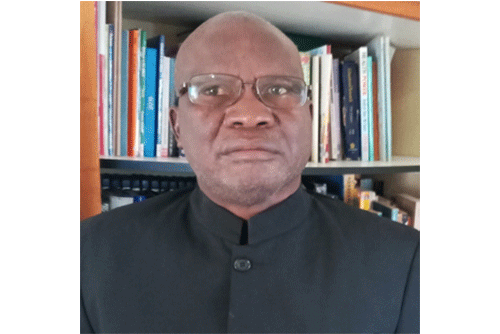After 34 years of nationhood, Namibians are still subjected to house repossession, despite having struggled to have a house called their own home.
It is more like the sword of Damocles, denoting the sense of threat created by a precarious situation, especially one in which the onset of tragedy is restrained only by a delicate trigger or
chance.
The electricity and water bills are responsible for the repossession of the house, despite having paying off the mortgage. For the pensioners, it becomes almost impossible to keep the house, as it is too expensive for them to sustain these bills.
This means that the house is repossessed on the basis of failing to settle the electricity and water bills. During the 20 years of hard work and paying for the house, one spent sleepless nights trying to find ways and means of settling the mortgage and, at the same time, maintaining the family.
It adds to a nightmare when
the car installment is added, as the two monthly payments cannot add up and be sustained at the same time. This could be an incredibly stressful and challenging experience for individuals and families.
It is common knowledge that house repossession occurs when homeowners fail to meet their mortgage or loan obligations, leading financial institutions to take legal action to reclaim the property.
This situation can arise due to various factors, including job loss, economic downturns, unexpected medical expenses, or other financial hardships. But most of these factors can be avoided if measures are taken by the government to avert them.
With a small population in Namibia and vast resources, surely there should be no need for anyone to live in fear of the house being repossessed. Namibians fought for better living conditions, which is therefore unacceptable when the citizens are subjected to psychological torture through house repossession. Namibia should emulate the South African formula for solving housing challenges, where the government initiated a scheme for free housing. This is relevant as one of the reasons for the liberation struggle was to bring the contract labour system to an end where Blacks were below the living standards.
That is why the Namibian government should concentrate on housing to rectify the errors of the past in terms of better accommodation. But it is surprising that there are still locations in this country where sanitation has not improved for many years, let alone the number of houses. For those facing house repossession, the consequences can be severe.
Not only do they lose their homes, but they also experience significant emotional distress, financial instability, and a sense of uncertainty about their future. The process of repossession can be lengthy and complex,
involving legal proceedings and negotiations with lenders. But the most serious effect and impact are among school-going children,
who never recover from that shock.
It is a known fact that many Namibian institutions are not sensitive to the plight of their former employees once they fall out of favour.
The employing institution never cares what happens to the children of the employee after the loss of the job as a breadwinner. Although, there may be community resources available to assist individuals at risk of house repossession, these services are not made available to the majority of the affected people.
Resources and services, which may include counselling services, financial assistance programmes, legal aid clinics, and housing advocacy organisations, only appear on paper to many vulnerable people.
Very little is done to disseminate this information to the affected people so they can benefit from such services and resources. It is equally essential for individuals facing repossession to seek out these resources and explore all available options for avoiding foreclosure or finding alternative housing solutions.
This may be possible in an atmosphere of trust and honesty between the parties involved, which is almost untenable in this country. Furthermore, the government and local authorities may have measures in place to address the issue of house repossession and provide support to vulnerable homeowners.
These measures could include foreclosure prevention initiatives, affordable housing programmes, and policies aimed at stabilising the housing market. Although this point is appropriate, it becomes ironic when the political leaders are the ones who supervise the demolition of houses in the suburbs.
The issue of Katima Mulilo, in which many houses are still being bulldozed, is a case in point. No support is found from the government or political leaders when houses are being repossessed by banks and other financial institutions.
What is happening is the collapsing of financial institutions perpetuated by individuals and ultimately pocketing the money that could have assisted vulnerable people and children who desperately need a roof over their heads.
Despite the challenges and uncertainties associated with house repossession, it’s essential for individuals to come together and seek support from the government and other organisations involved in the social welfare of the
people.
As the saying goes, “munwe wonke kautolyi ngina”, meaning one finger alone cannot pick a louse. They should also stay informed about their rights and options, and proactively engage with lenders and relevant stakeholders to address their situation.
By doing so, they may be able to mitigate the impact of repossession and work towards securing stable housing arrangements for themselves and their families. This is crucial for school-going children, who need accommodation to study, in order for them to become responsible leaders!
*Professor Makala Lilemba is an academician, author, diplomat, motivational leader, researcher, and scholar.


